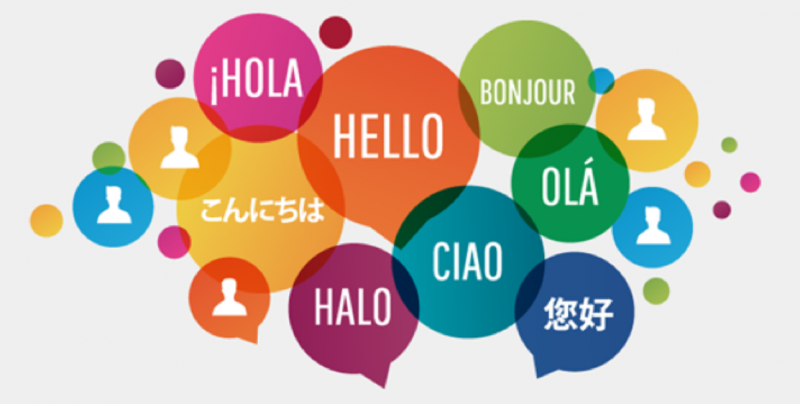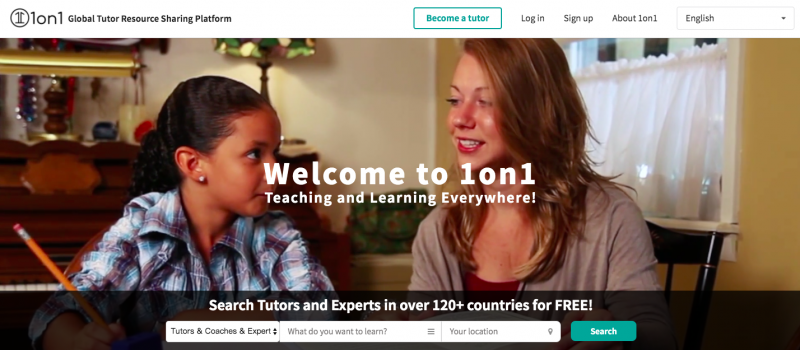How to Learn a Language Quickly

How to Learn a Language Quickly
How long do you think it would take you to become fluent in a new language at native level? Isn’t that a long time?
As much as I’d like to tell you that I know all the tricks to getting you to a native level in less than a year…It is just not conceivable. To properly master a language, it takes years of effort. The good news is that conversational fluency may be achieved in a much shorter period of time.
Conversational fluency is defined as the capacity to have typical, daily discussions with a native speaker at a normal, conversational pace. If your ultimate objective is to get to know foreign people, learn their culture, and effectively assimilate into their nation, this is what you’ll need. Unless native fluency is critical to your job (for example, if you’re an international spy), you should concentrate on conversational fluency.
Here’s a little history about me before we get started: I’m not someone who can communicate well in a variety of languages. As a result, I’ve spent the last few years conducting extensive study on successful language learning. Polyglots — persons who speak many languages – have been the subject of much of this study. If you’ve ever met a polyglot, your initial impression was likely that they were superhuman. They will, however, be the first to inform you that they have no particular abilities. Instead, the ideas they follow are primarily responsible for their success with languages.
These ideas will be explained in this brief guide. You can achieve conversational fluency in your chosen language in 12 months if you follow their advice. So, let’s get started!
1. Make studying a foreign language a daily habit.
People claim that they are unable to learn a language because it is too difficult or that they are not “excellent” at it. In actuality, the most common cause for failure is that people are unable to constantly learn the language.
How much faster might you learn a language if you could develop comparable everyday habits?
A habit typically consists of three elements: a trigger, a routine, and a reward…
The cue causes the behavior to occur. I propose just placing daily reminders in your online calendar for language study. The routine refers to the actions you take in response to the signal. Make the routines simple at first, such as accessing your language app or reviewing 5 words from your previous class.
These routines may appear insufficient, but because they are so simple, you will almost certainly succeed, and you will find that you want to accomplish much more than your first assignment. Finally, reward yourself in some way since positive reinforcement will help you succeed. This might include buying yourself something, but for many individuals, simply seeing their success is enough to keep the practice going.
You could be thinking to yourself, “OK, this all sounds great, but I just don’t have the time.”
To achieve improvement, you just need 15 minutes each day, which you almost certainly have. Consider your regular commute: owing to technological advancements, you may use this time to study vocabulary or listen to foreign podcasts. So quit making excuses and go to work on developing those everyday routines. The rest of this tutorial will teach you how to develop some of these behaviors.
2. Take use of free resources (at the right level)
It’s never been simpler to study a language without visiting the place where it’s spoken. This is due to the abundance of free reading and listening options available on the internet. Every day, use them to immerse yourself in the language.
You should aim to use language materials that are only one level higher than your own. Comprehensible input is the term used in linguistics to describe materials at this level. To put it another way, you should only be able to understand what you’re reading or listening to. You should be out of your comfort zone, but you should just know enough of the language to grasp and interpret new words.
When it comes to format, radio and podcasts are fantastic after you’ve reached an intermediate level, but TV and films are better to start with. This is because the visuals give context, which aids in the comprehension of the words. One thing I strongly advise is that you keep an eye on the foreign news. You will have a higher chance of understanding newscasters since they talk extremely plainly. You may also be familiar with some of the news articles owing to the worldwide focus. Even if your level is extremely basic, the visuals, together with the clear pronunciation and your past knowledge, will help you follow along and pick up new terms.
Radio and podcasts have the advantage of being able to be listened to while commuting or doing other activities. If you’re a novice, you may listen to podcasts with transcripts that talk extra slowly.
3. Learn the proper pronunciation of the correct words.
The most common reason given for people’s inability to learn languages is that they have poor recall. But the issue isn’t so much with their memory as it is with their method.
Here are five suggestions for expanding your vocabulary in the most practical way:
a. Recognize cognates.
These are words that sound almost same in another language. For example, the Spanish word gratitud is the same as the English word thankfulness. Hundreds of terms in Romance languages including Spanish, French, and Italian are shared with English. These cognates may simply be found on the internet. The pronunciation will vary somewhat, so double-check using Forvo, a fantastic, free website where you can listen to native speakers pronounce certain terms.
b.The most regularly used terms should be learned.
You’d need to know at least 50,000 words to reach native-level proficiency in a language. However, you only need to study a portion of it — 2000 to 3000 words – to reach conversational proficiency. This is due to the fact that in all languages, a small number of words make up the majority of the spoken language. You may discover lists of these terms online once again. You will, however, come across them in the course of speaking and listening to the language. Write down and memorize the words you hear frequently while disregarding the more difficult terms.
c. Use flashcards and spaced repetition to help you remember what you’ve learned.
Flashcards are arguably the most effective method of memorizing a language. They use a technique known as spaced repetition, in which an algorithm learns how well you know each word/flashcard and then prioritizes them so that you may focus on the things you don’t know rather than wasting time on what you already know. Students should make flashcards out of the language they’ve learned in class, according to Lingoci.
d. Words that are significant to you should be learned.
Focus on issues that interest you or that come up in your daily life to do this. These might be tied to your job or your own interests. You’ll be more likely to utilize the words you learn in real life if you focus on relevant terminology. It will also be easier for you to remember these terms.
e. Carry a notebook with you at all times.
Make a list of any relevant words you come across while learning the language. While you may look up translations using an online dictionary, I recommend copying down the words in a notebook rather than capturing them on a gadget. Studies have shown that writing rather than typing boosts your capacity to retain information greatly. This, according to researchers, is due to the fact that writing takes longer and requires more brain processing.
4. Begin speaking from the beginning.
As stated in the last section, all you need to improve your reading and listening abilities is access to the internet. Speaking, on the other hand, is still best done in the presence of another person.
There are three primary choices available here. Finding native speakers to communicate with is a free option. You may easily find language exchange gatherings on websites like Meetup.com. One disadvantage is that it is inefficient because you must go to the meetup and spend some of your time assisting others with their native language.
Attending group lessons is another option. These can be enjoyable from a social standpoint, but they are not ideal for practicing speaking because you will have to take turns with other students. In addition, classes frequently move at the pace of the slowest student.
Taking 1-on-1 classes, on the other hand, is the most efficient solution. The price may be a little more, however this isn’t always the case while taking the classes online. In addition, you’ll get the opportunity to practice speaking with a native speaker. (As an aside, 1on1.today has a list of available tutors.)
The relevance of feedback in acquiring abilities has been stressed in educational studies. To develop your speaking abilities quickly, you must force yourself to make mistakes and obtain correct feedback so that you may learn to make fewer errors. As a result, the person you’re communicating with should be a native English speaker who can see problems and give proper corrections. An exchange partner can offer some input, but they may not be able to provide detailed explanations because they only know their language subconsciously. This is why hiring a private teacher is the best option to enhance your language skills.
If you’re a novice, study this section but wait many months before putting your speaking talents to the test. This is reasonable because learning a new language requires courage. If your aim is to be able to communicate at a conversational level, however, you should begin practicing right away. The more mistakes you make, the more feedback you’ll get and the faster you’ll improve. Naturally, you must feel “safe” in making mistakes, which is why teachers must establish a welcoming and easy learning environment.
Finally, the finest language learners supplement their speaking practice by occasionally talking to themselves in the language they’re studying. Give it a go to help you gain confidence and enhance your pronunciation. Just don’t do it in a crowded location at the top of your lungs; others might think you’re insane.
5. Take pleasure in your language learning experience.
I have discussed why it’s typically better to focus on conversational fluency rather than native fluency. This is because it is all that most individuals require, and it can be obtained in about 12 months through immersion learning. Whether you achieve conversational fluency in a year or a year and a half, it will be a path that requires continual drive.
People often give up studying a language because they are bored with their textbooks and rely on their own resolve to keep going. You can’t rely on determination alone to learn a language. This is why you must have fun at all times. If you’re having a good time, you’ll want to practice every day. So, instead of obsessing about grammar drills, do activities you love and concentrate on themes that interest you.
If you like our article, welcome to add our blog link to your browser, or subscribe our blog (upper right of the page), then you can receive the latest article notification!
Have any questions, welcome to write to us for questions and discussions 🙂
Customer Service & Cooperation Proposal:[email protected]
Also!
If you want to find English Teachers, Spanish Tutors, German Tutors, Accent Reduction Teachers, or Language License Lessons, etc.
Or want to find cases, share your knowledge and expertise to earn extra income,
Welcome to visit our main website: 1on1 Global Tutor Resource Platform
Other articles:
How to learn languages fast?
How To Start Coding?
6 Ways to Acquire New Customers
How to be a tutor online for earning income?
Global Skill Matching and Freelance Jobs Website List
How to write and prepare a tutor resume? Attach example
How to Market and Operate a Coffee Shop(Cafe)







